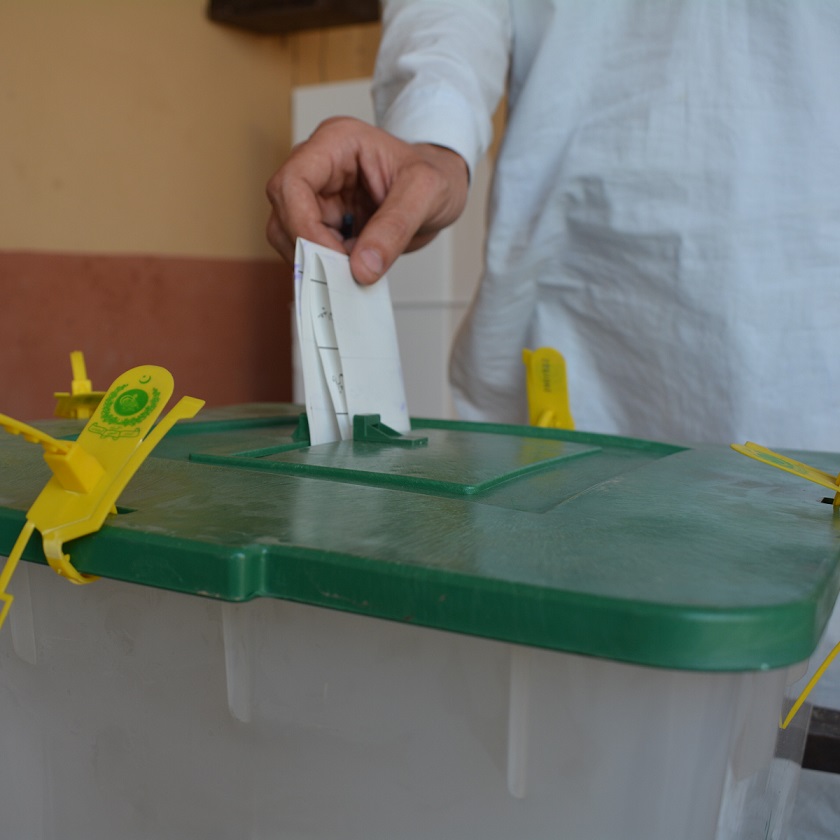Nabila Qayyum Afridi is a highly educated woman from the Shah Kis area of Jamrud Tehsil in Khyber District. She was elected as a female member in the local body elections. Participating in the municipal elections was a challenging decision for Nabila; she had to work hard to obtain permission from her family. However, behind all these efforts was the firm belief that she could make a difference for the women in her area.
“I used to think about upgrading girls’ primary schools to high and higher secondary schools and establishing a basic health centre to provide medical facilities in the area. However, it has been one and a half years since my election, and I have yet to take a single step in this direction. Given the slow pace of progress, it seems unlikely that significant changes will occur even within the next four years.”
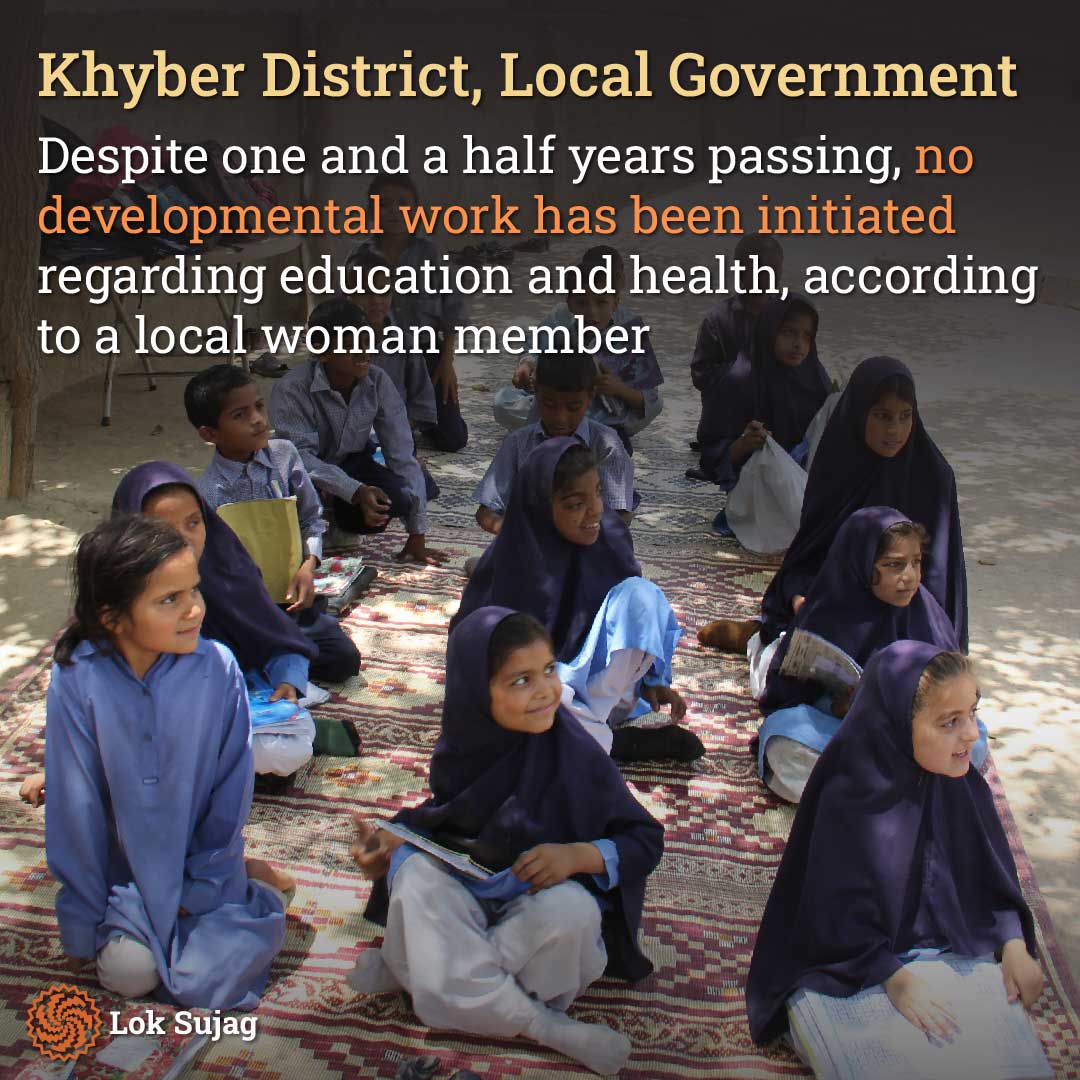
In Khyber Pakhtunkhwa, local government elections were conducted in two phases, in December 2021 and March 2022. These elections led to the establishment of local bodies for the first time in the merged tribal districts of Khyber Pakhtunkhwa, encompassing village, neighbourhood, and tehsil municipal councils.
Sajida Iqbal was elected as a member of the reserved seat for women in the local government elections from Tehsil Sadda of Kuram District. Even before this election, she had been working independently to address the issues faced by women in the area. However, to enhance her efforts in improving the welfare of the people and achieving tangible results, she decided to participate in the local government elections.
Regarding the problems women face, she stated that women in her area encounter challenges in accessing financial assistance through NADRA offices, the Benazir Income Support Program, and a lack of adequate hospital facilities.
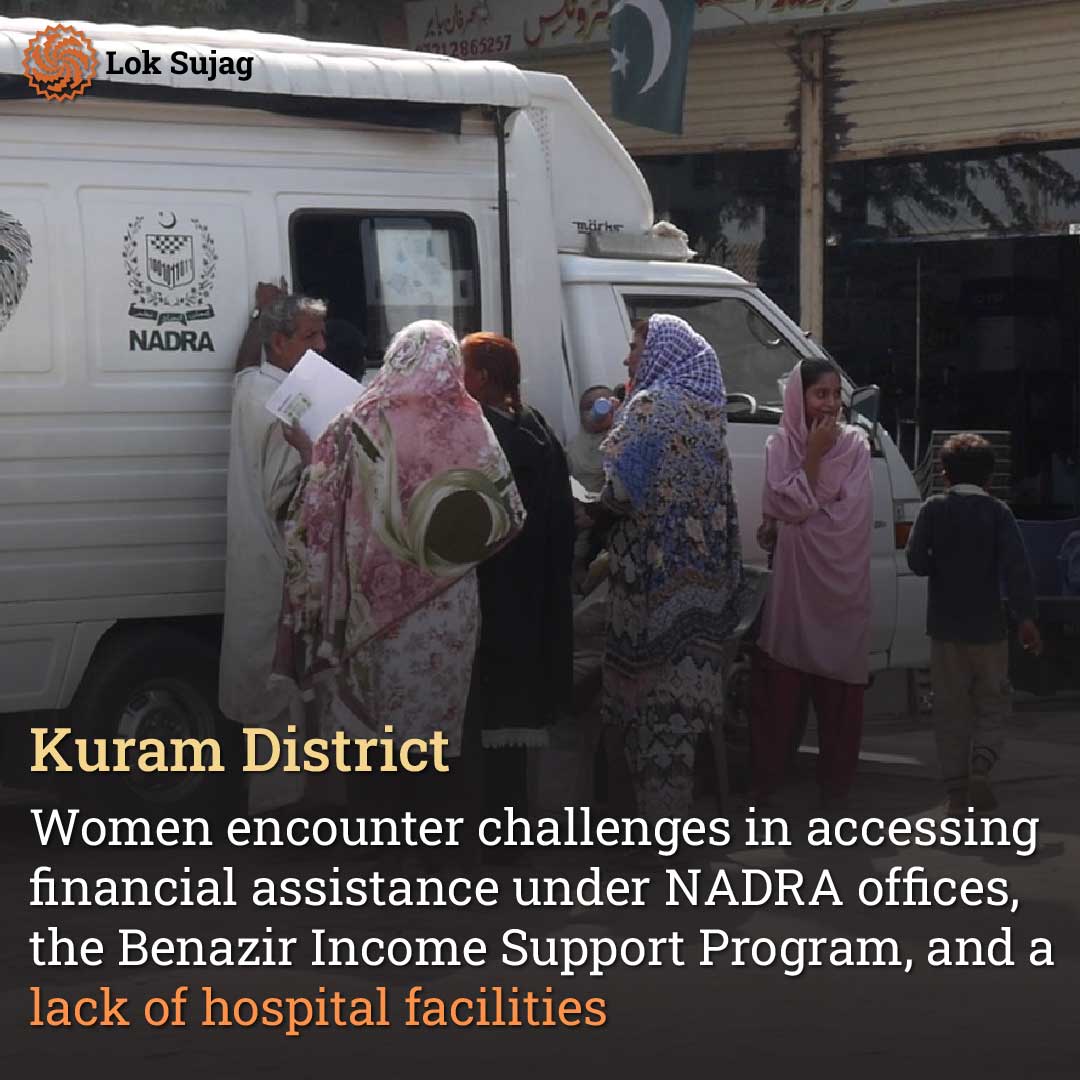
“The Benazir Income Support Program centre in this area is overcrowded and understaffed, with women waiting for their turn along with their children for hours in the sweltering heat. Additionally, some women’s cards are blocked for undisclosed reasons, and there is a lack of proper guidance and support.”
According to Sajda, the waiting room for women at the NADRA office lacks shade, drinking water, and restroom facilities to provide relief from the sun.
Additionally, in certain departments of the hospitals, women encounter treatment challenges due to a shortage of female staff.
“When we approach government officials to address these issues, they respond that we lack the legal authority to intervene, as these matters fall outside the jurisdiction of local governments.
“Consequently, two years have passed, and women’s problems remain unchanged.”
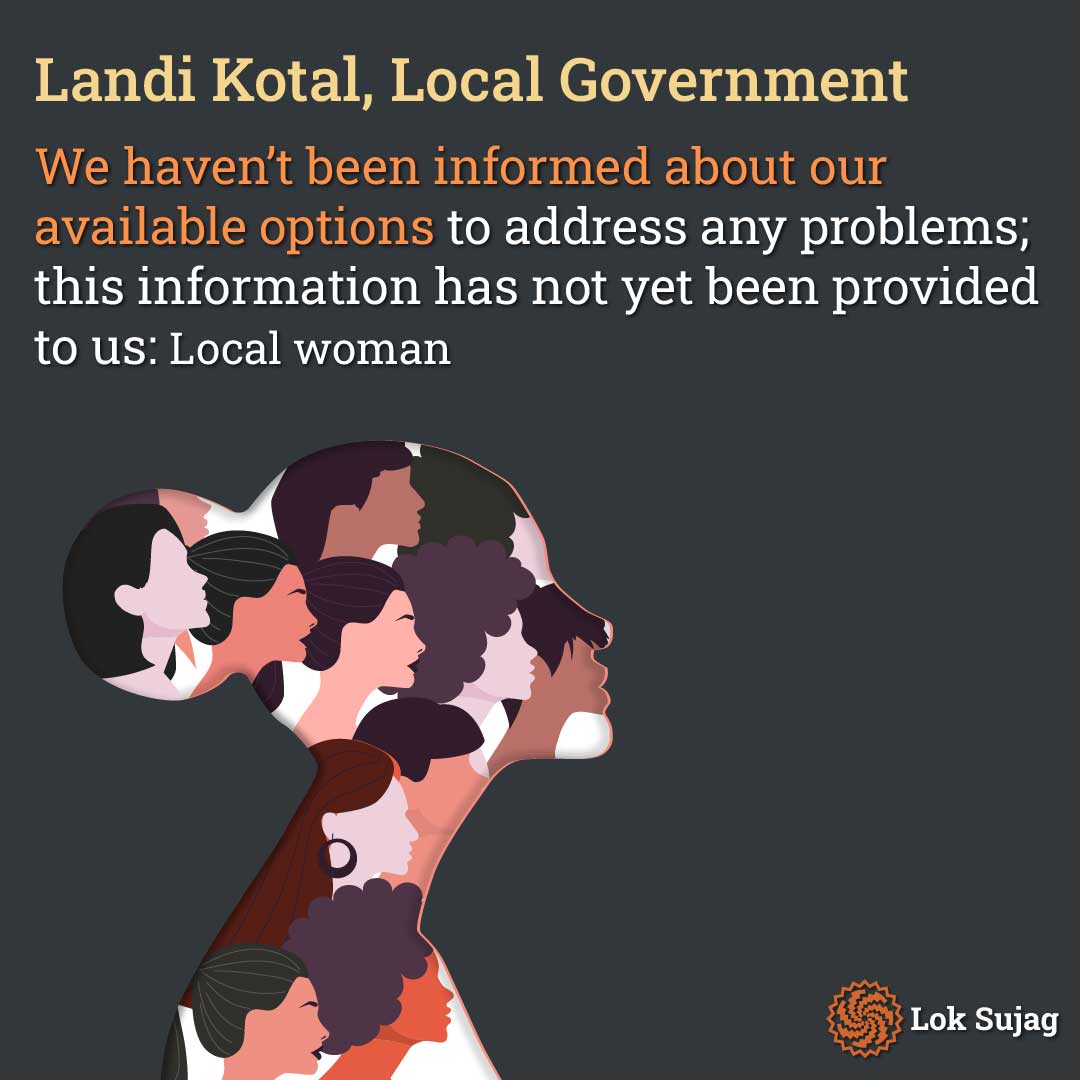
Shamaila Khan Afridi, a social activist from Hasan Khel (formerly Frontier Region Peshawar), a tribal sub-division integrated into Peshawar, also had hopes of witnessing progress in addressing the area’s challenges following the election of women in local governments.
“Women are the most affected by the problems related to basic amenities, such as the lack of healthcare, education, and access to clean drinking water. When the local body elections resulted in the election of women members in villages and neighbourhoods, there was hope that these issues would be addressed and improved.”
Soumya Afridi, an elected woman member of the village council of Tehsil Landi Kotal of Khyber district, says that women’s problems are much greater in the merged districts than in the rest of the country.
“Education and health facilities are lacking in these districts, basic amenities like drinking water are non-existent, in many areas, women walk many kilometres and carry water on their heads.”
“We have not been told what our options are to date.”

Nabila Afridi emphasises the need for regular meetings at the Tehsil Council level. The Jamrud Tehsil Council has only conducted one or two meetings thus far, with limited participation from women members.
She explains, “In the two years, the first meeting was convened for oath-taking, during which 27 elected women from Jamrud Tehsil participated. In the second meeting, I was the sole woman member in attendance. In the third meeting, only three women participated.”
She mentions that women members are often excluded from decision-making processes, consultations, participation in meetings, and interactions with officials regarding problem-solving.
“On one hand, the number of women members is already limited, and their participation in meetings is also sparse.
“Additionally, due to the significant presence of men, women are often denied the opportunity to speak.”
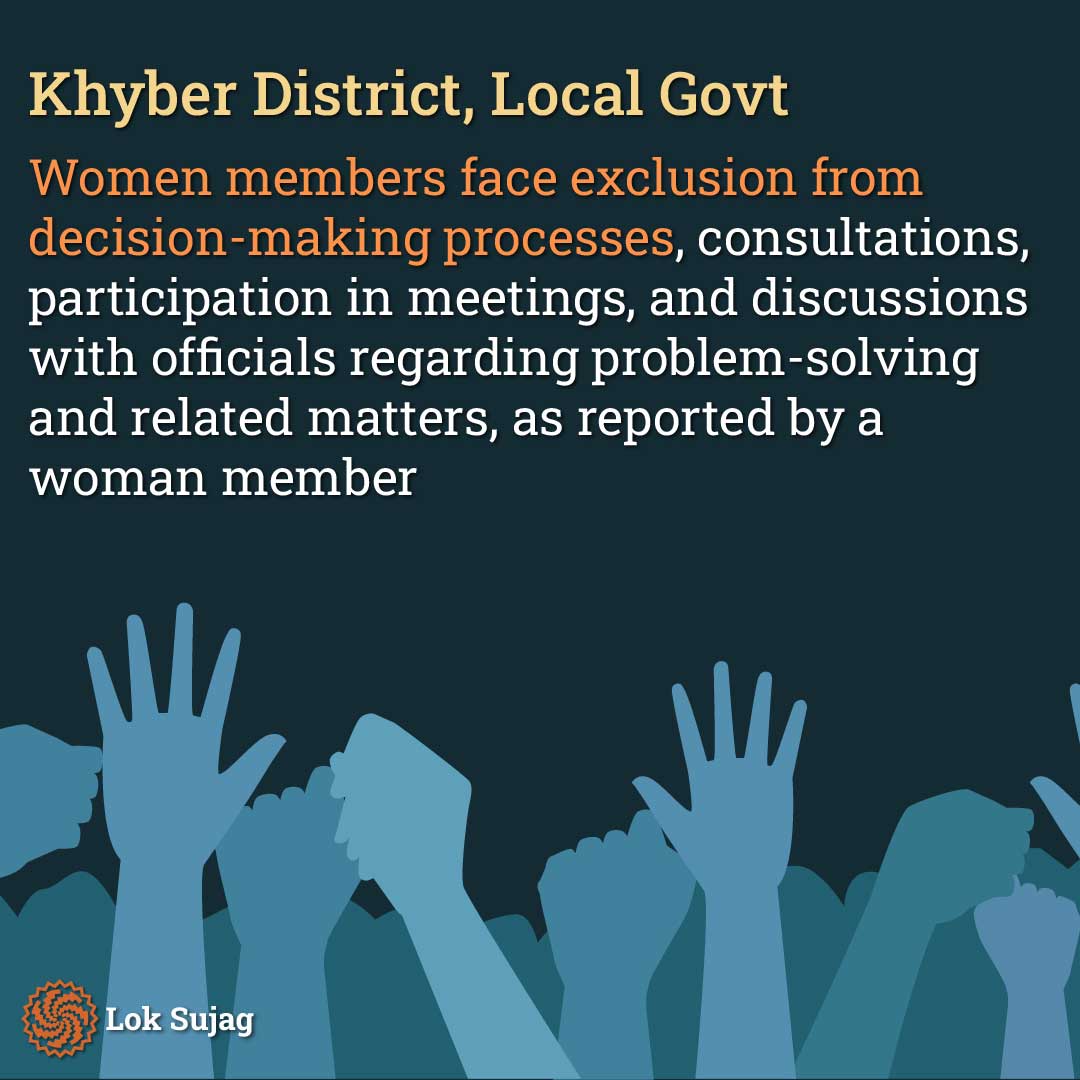
She also points out that women have no designated seating area during meetings, drinking water provisions, or separate washrooms.
When the Tehsil authorities were approached, they explained that the Tehsil Council meetings occur in the Jirga Hall within the Jamrud Tehsil building. They mentioned they lack additional resources or security arrangements for local government representatives’ meetings, and no funding is available to provide these facilities.
Zahidullah Afridi is the village council chairman in Tehsil Bara of Khyber District. He expressed that nearly two years have passed, yet the village council has not been provided with an office, nor has the development fund been disbursed.
Regarding the participation of women in meetings, he clarified that women members are allowed to speak when they attend. However, there are instances where husbands or other male representatives attend meetings on their behalf, which limits the proper representation of women’s issues.
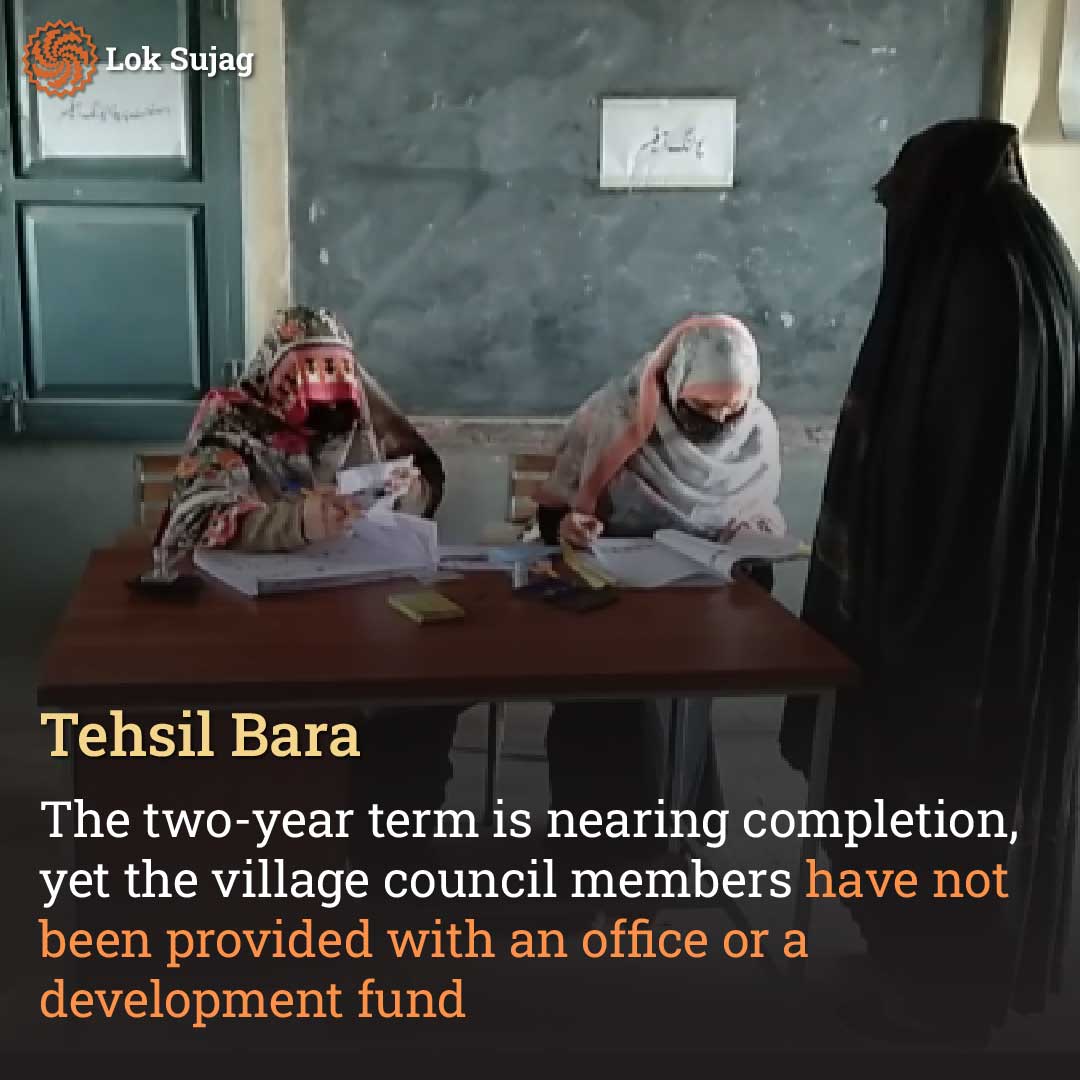
“Elected representatives have been effectively placed under the authority of government officials. The Assistant Commissioner has been granted the power to oversee the departments transferred to the Tehsil level. In essence, local representatives cannot directly issue orders to officials in these departments; instead, they must go through the Assistant Commissioner.”
Likewise, the responsibility for providing all civic amenities has been placed under the purview of the Tehsil Municipal Officer (TMO). This implies that local representatives depend on the TMO to address civic issues.
The TMO has also been granted authority to utilise the funds allocated to local governments for development projects.
Additionally, they will serve as the head of the Tehsil Development Committee and can make recruitment decisions for positions ranging from Scale 1 to 16 as needed.
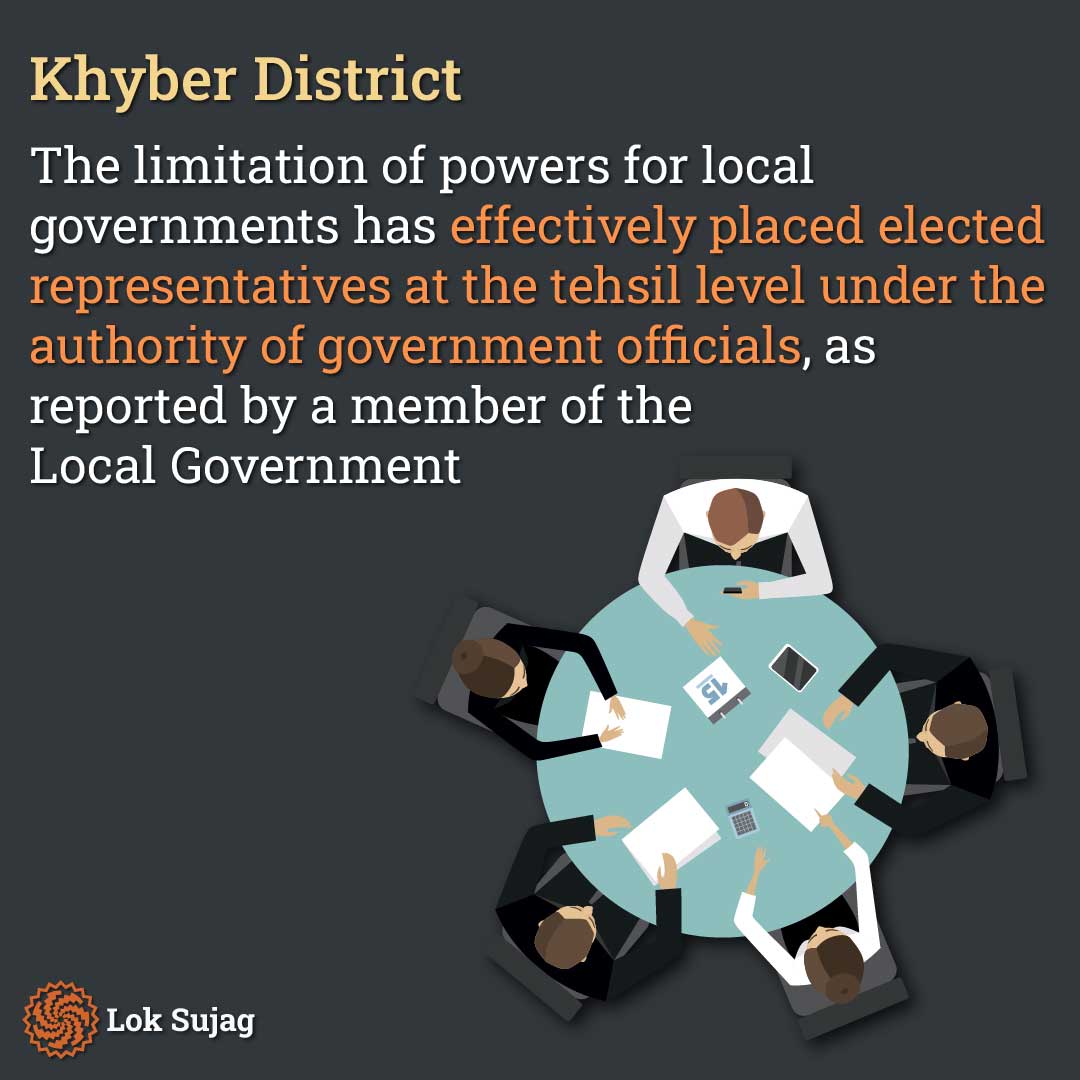
The village secretaries are authorised to oversee all the affairs of the village and neighbourhood councils, but they cannot make administrative decisions without the approval of the chairpersons. However, these councils must obtain approval from the assistant director of municipalities in their tehsil before allocating funds for any development project.
Soumya Afridi explains that elected members received a three-day training on the local government system with the assistance of a donor organisation. During this training, they were educated about their powers and responsibilities.
However, despite the training, the release of funds and cooperation from government bodies still need to be improved. This lack of collaboration has rendered the local government system ineffective, not only in the merged districts but also across the entire province, which is unfortunate.
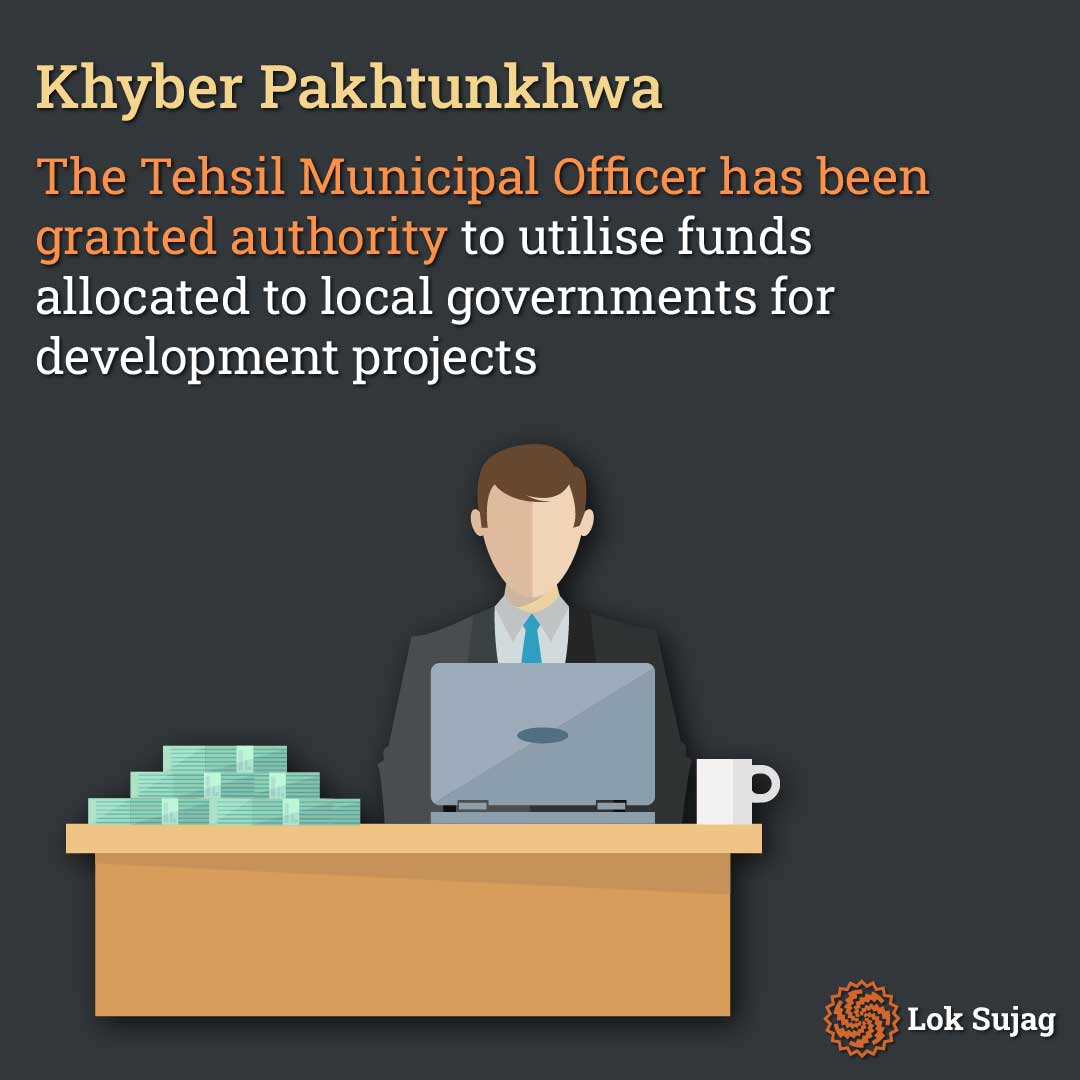
Mukhtar Ahmad Ali, the head of the Centre for Peace and Development Initiatives (CPDI), a non-governmental research organisation based in Islamabad, attributes the responsibility for changes in the laws governing local governments during local elections to the Pakistan Tehreek-e-Insaaf party, which has sparked political controversies. According to him, these changes are a regrettable development that may prove detrimental to the efforts to strengthen democracy in Pakistan.
Former Local Government Minister of Khyber Pakhtunkhwa, Faisal Amin Gandapur, refutes this impression and states that the provincial government did not exhibit any malice in formulating the rules and regulations, nor did it intend to diminish the powers of local governments.
He asserts that no new powers have been granted to the provincial government through the amendments in the law and the rules and regulations. Instead, it reaffirms that members of the provincial assembly can only work on development projects in the area as needed. At the same time, all other powers remain vested in the representatives of local governments.
Also Read

Restoration of local governments in Punjab: Justice delayed is justice denied
A top official from the provincial finance ministry states that for the financial year (2021-22), 15 billion rupees were allocated for local governments under the Provincial Finance Commission Award. Despite the establishment of local governments in April 2021, not a single rupee was disbursed until the end of the financial year, which concluded on June 30, 2021.
He further explains that for the financial year (2022-23), 41 billion rupees have been allocated for local governments under this award. However, the provincial government has withheld all the funds, which has resulted in the paralysis of local governments. Over the last two years, local government representatives across the province have not received funds or monthly honorariums.
The primary reason for this was the premature dissolution of the Tehreek-e-Insaaf government in the province before completing its term, compounded by the erratic behaviour of political parties. According to him, this year, the finance commission has not convened to determine the amount and method of releasing funds to local government representatives.
When discussing the financial challenges faced by the province under the caretaker government, he acknowledged that there are indeed problems. However, he emphasises that it should be possible for the government to allocate funds for a specific sector.
Published on 8 Sep 2023
